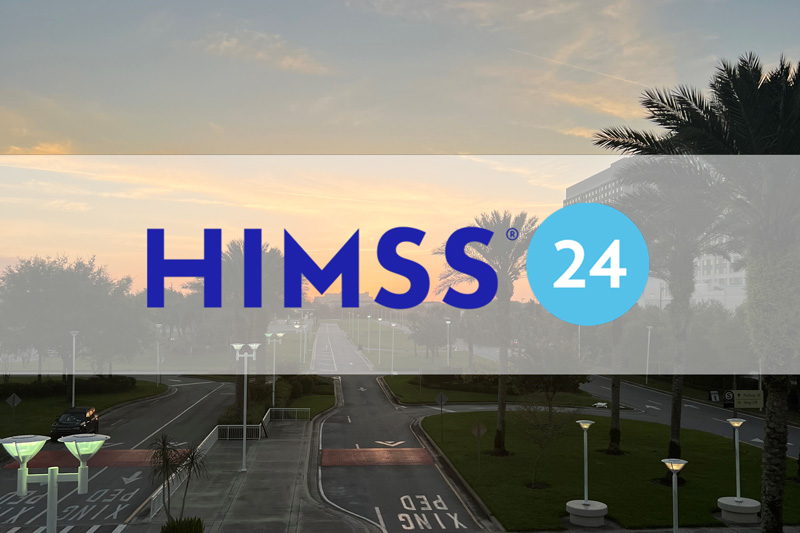 As a healthcare leader trying to navigate the path to patient-centered, quality-focused care, you’re doing your best to drive change through your organization. But invariably you run up against the constraints of an industry model that hasn’t caught up with the aspirations of population-wide health. That’s the dilemma that Dr. John Chessare, CEO of Greater Baltimore Medical Center (GBMC), described at a recent conference sponsored by the Maryland chapter of the American College of Healthcare Executives.
As a healthcare leader trying to navigate the path to patient-centered, quality-focused care, you’re doing your best to drive change through your organization. But invariably you run up against the constraints of an industry model that hasn’t caught up with the aspirations of population-wide health. That’s the dilemma that Dr. John Chessare, CEO of Greater Baltimore Medical Center (GBMC), described at a recent conference sponsored by the Maryland chapter of the American College of Healthcare Executives.
Dr. Chessare told of imploring his staff to minimize emergency department and hospital utilization by channeling patients to primary care centers; but then walking by the nearly empty ED and realizing that the revenue necessary to finance GBMC’s progressive advanced primary care centers was actually dependent on a busy ED. “The payment system needs to catch up with the reality of what we actually need to do to reach the goals of the Triple Aim,” he declared, adding, “It’s just not changing fast enough.” Nonetheless, he and other healthcare leaders know they can’t afford to wait for payment reform.
So how do you move forward in spite of the obstacles?
Learning health system provides a path forward
The Institute of Medicine published a report titled “Best Care at Lower Cost” that proposes some of the possible answers. It describes a continually learning health system in which “science and informatics, patient-clinician partnerships, incentives and culture are aligned to promote and enable continuous and real-time improvement in both the effectiveness and efficiency of care.” Just about all the prescriptions for achieving these goals depend on harnessing the power of information and analytics to facilitate data-driven, evidence-based decisions. But they also require leadership, like that of Dr. Chessare, and a culture that embraces information as an indispensable ingredient of the decision making process.
What’s really intriguing about the ideas in the report is that they are largely based on the actual experience of leading U.S. healthcare systems. In fact, Appendix B of the report provides numerous case studies of innovations and improvement initiatives that have led to both lower costs and better patient outcomes on the front lines of healthcare.
Here are a few examples:
- Partners Healthcare reduced readmissions for heart failure patients by more than 50%, lowering costs by over $8,000 per patient, with remote home monitoring.
- Geisinger Health reduced morality among coronary artery bypass (CABG) surgery patients by 67% and length of stay by 1.3 days by employing evidence-based protocols developed by the physicians responsible for caring for those patients.
- Cincinnati Children’s implemented a series of intervention bundles that led to $5.6 million in savings per year by reducing ventilator associated pneumonia by 85% and catheter-associated bloodstream infections by over 50%.
The experience from these and others suggests that opportunities to improve abound despite the lagging pace of payment reform.
To explore these ideas further, set up a free account to download the report from the National Academies Press website.
Dimensional Insight and the learning health system
At Dimensional Insight we’re in a great position to observe the impact of data driven decisions firsthand. Our customers routinely achieve significantly improved business and clinical outcomes while transforming their cultures to embrace the ideals of continuous improvement and knowledge creation described in the Institute of Medicine report. Their examples have inspired us to further expand the reach of our solutions to contribute to the learning health system.
In an upcoming series of posts, I’ll share some of those customer stories as well as several healthcare-focused technology and product initiatives currently underway at Dimensional Insight that seek to streamline the process of transforming data into knowledge.
Ready for a test drive of our healthcare analytics software?
- Practical Analysis: The Next Chapter - May 21, 2020
- Exploratory Data Analysis Part 2: Helping You Make Better Decisions - October 11, 2019
- Practical Analysis: Understanding Visualization Concepts - September 19, 2019


